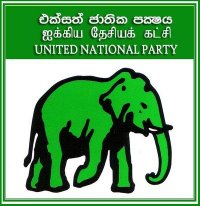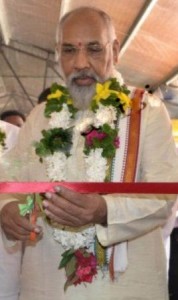by
Prof.Carlo Fonseka
Jerome de Silva is manifestly the brains, brawn and high-voltage energy behind this production of the world famous The Phantom of the Opera, I was invited to see on 10th of October. In the 1970s Jerome’s haunting voice impinging on my consciousness through radio mesmerized me long before I met in the flesh the phantom to which that voice belonged.
When we finally met, I discovered that we had both been Josephians, albeit at different periods. Fortunately for theatre in Sri Lanka, Jerome had defected to St. Peter’s College, Colombo to put the finishing touches to his secondary school education. St. Peter’s had inspired in Jerome a passion for the theatre which is what has made him tick in maturity.
In 1992 a group of Peterites founded the Workshop Players’ Organization—the WSP Family – a nonprofit outfit dedicated to theatre. Having indulged their passion for musical theatre as best they could in a third world artistic environment for over two decades, they have climaxed with an unbelievable production of The Phantom of the Opera.
Greatest Show
I roundly declare that it is the greatest show I have ever seen at the Lionel Wendt Theatre. I hasten to add that the appellation “greatest show” applies unreservedly to the technological and stagecraft aspects of the production I saw. It was spectacular and magnificent. It was beautiful, a joy to behold. Given my innocence about the artistic intricacies of the musical genre of opera, I would be a fraud to pretend that I am equipped to judge the quality of the singing which is the quintessence of classical opera.
Because, however, I sense that I have some music in myself and that I am “moved with concord of sweet sounds” I feel that I am entitled to hazard an opinion for what it is worth. It seemed to me that the singing of all the players was pitch-perfect, impeccably phrased, melodious and harmonious. They were all emotionally convincing.
For a wrong reason I single out for special praise Sean Amarasekara who played Phantom. The reason is that Sean is, even like me, a medic with a passion for music. When I first heard him sing as a mere boy I told his mom Dr. Suriyakanthi Amarasekara the superb anaesthesiologist, and a favourite erstwhile pupil of mine, that her son had been born for opera singing and not for commercial “doctoring” (in the literal sense).
His scintillating performance as Phantom provided proof, if further proof were needed, that his natural place is the musical theatre and not the operating theatre. Moreover, Sean satisfied my vanity by amply vindicating my prophetic judgment about his singing potential. Sean was extraordinary, but not exceptional. He was ably supported by the other players of the WSP family to make the performance of The Phantom of the Opera an unforgettable musical experience. A couple of friends who had seen The Phantom in London told me that by this production at the Lionel Wendt Jerome de Silva had wrought a miracle on a third world stage.
The Future
Let us face it: in our country opera of The Phantom variety is very much an elitist musical indulgence. The excellent publication produced by the WSP to mark the production served to educate me on many aspects of the opera. One thing I gathered was that the current production of The Phantom cost “millions” and that the production was made possible mainly by the phenomenal generosity of Cargills (Ceylon) PLC. I will concede that not all accumulators of lucre are as ugly as sin. And the Gospel according to St. Luke says that “everyone to whom much is given, from him much will be required.” Cargills (Ceylon) has certainly fulfilled this biblical requirement. The challenge for the WSP Family now is how to make The Phantom accessible to many more theatre – goers with a taste for serious musical theatre. Given Jerome de Silva’s amiability, accessibility and ability “to move with kings nor lose the common touch” I think that he is the wizard best equipped to attempt the impossible enterprise.
The famous Harvard economist John Kenneth Galbraith judged that without State support arts in a capitalist society cannot flourish. This is surely true of our own country. The WSP Family has dedicated groups involved in Sinhala Theatre production. One remembers that Jerome played a critical role in the acclaimed Sinhala film called Akasa Kusum. He freely lends the fruits of his knowledge and experience in the field of drama to less privileged theatre people in our country. His choreography for the Sinhala production of Dharmasiri Bandaranayake’s The Trojan Women won the award for the best choreography in the Stage Drama Festival in 2000.
The philosophy of the WSP Family is admirable: promoting peace through drama. As it happens, the theme of The Phantom is humane: how those with short frames, bald heads and pot-bellies (even like me!) through no fault of theirs have to be made acceptable to society. In this opera, the first time Phantom with his deformed face receives a kiss from a woman, (on his forehead) the experience overwhelms him with emotion. After that humane encounter, Phantom became kinder and more tolerant. That experience mellowed him. In the end the function of art is moral. Let us hope that Jerome de Silva will be resourceful enough to bring this theatrical experience to a much wider audience.
Courtesy:The Island
















































